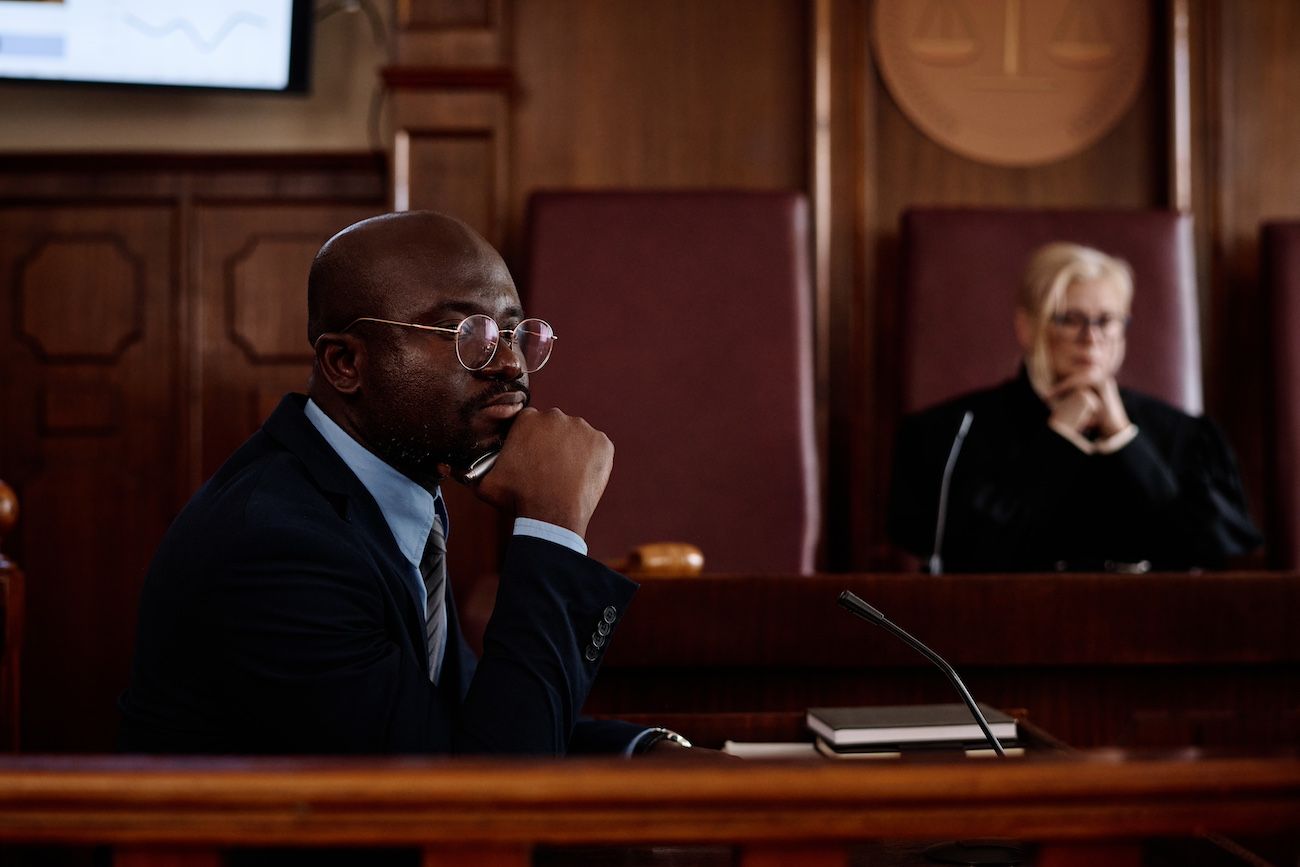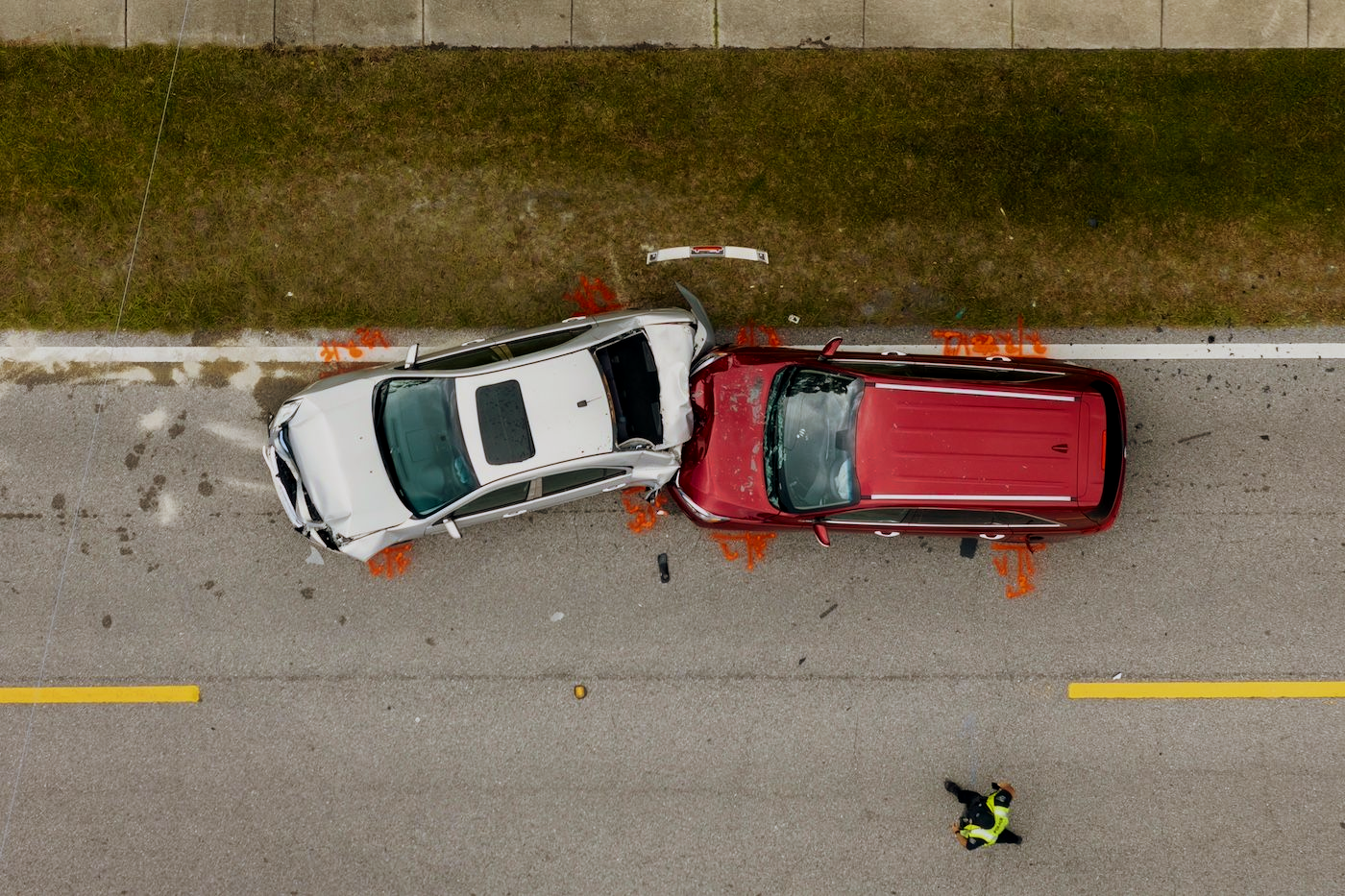Will My Personal Injury Case Have to Go to Trial?
About the Author
Ethan Charles (“EC”) Duckworth is the founding attorney of Duckworth Injury Law. EC earned his law degree from the University of Missouri - Columbia, where he graduated in the top 10 of his class and served as an Editor of the Missouri Law Review. EC currently serves as a member of the Missouri Association of Trial Attorneys (MATA) and is a graduate of the Ross T. Roberts Trial Academy. EC has represented hundreds of injury victims throughout his career, resulting in tens of millions of dollars in compensation recovered. Recently, EC obtained a $973,000 verdict in a wrongful death case that went to a jury trial in Johnson County, Missouri.
Only You Can Determine Whether You Should Take a Personal Injury Case to Trial. PI Lawyer EC Duckworth Can Guide You
Oftentimes, while injury victims want full and fair compensation for their damages sustained in a crash, they want to avoid filing suit and/or having to go to trial if possible. As such, at Duckworth Injury Law, clients often ask whether or not their personal injury claim will have to go to trial.
The short answer is that ultimately, you decide whether your case goes to trial.
However, our firm (and any other good personal injury law firm) will provide you with a detailed analysis regarding the pros and cons of proceeding to trial well in advance of you having to make that decision. Often, the decision to proceed to trial involves the at-fault party’s insurance company refusing to pay the compensation you deserve following your accident. Other times, it involves the at-fault party’s insurance company denying liability altogether and refusing to take any accountability for causing the accident. Regardless of the specific reason that proceeding to trial is being considered, you will get to make the ultimate call on dismissing the case, settling the case, or taking the case to trial.
How does a personal injury lawyer determine whether it is a good idea to take your case to trial in mid-Missouri?
In making your decision on whether or not to proceed to trial or to settle your case, your personal injury lawyer will likely discuss the following factors for you to consider:
1. Your Likelihood of Winning at Trial
Perhaps the most important factor in making your decision on whether to proceed to trial or not is your likelihood of winning at trial. As Missouri is a pure comparative fault state, the jury will get to assess fault between you and the defendant(s) out of a total percentage of 100% (or 0%). If the jury believes you are 50% at fault for causing the crash and that the defendant is 50% at fault for causing the crash, then your total damages will be reduced by 50%. Alternatively, if the jury believes nobody was at fault for causing the crash (e.g., they believe the crash was unavoidable for both parties), the jury can award both parties 0% fault, whereby you would not recover any compensation.
As such, when deciding whether or not to proceed to trial, your injury lawyer should be able to provide you with his or her analysis regarding how fault will likely be distributed among the parties. While it’s impossible to predict exactly what the jury will do, an experienced personal injury lawyer should be able to provide you with a realistic range of outcomes.
Alternatively, focus groups can be used prior to trial to further assess your odds of winning at trial. A personal injury focus group involves paying a group of individuals who are not affiliated with the case to review the facts and damages associated with your case and to provide their feedback on liability (odds of winning) and damages (what the case is worth), among other issues. Often, a focus group can help more accurately predict your odds of winning at trial; however, they are often costly and add to your case expenses.

2. The Potential Range of the Jury Verdict
Second in importance only to winning the trial is the potential verdict you can obtain from the jury at the conclusion of the trial. This is because there is little reason for taking your case to trial if it’s likely you will obtain a verdict less than the existing settlement offer.
Again, while nobody can know for certain what a jury will award in their verdict, your attorney should provide a range of likely outcomes for the verdict. This will often include a verdict “floor”, “ceiling”, and “average”. Similar to assessing your likelihood of winning your case at trial, a focus group can be used to more accurately predict a verdict range.
Additional factors that play into your jury verdict include your past medical bills, future medical bills, past lost income, future lost income, past pain and suffering, and future pain and suffering, among others. Additionally, the conduct of the at-fault party can often affect the size of a jury verdict. The more egregious the defendant’s conduct, the more likely it is that the jury will want to punish the defendant with a higher verdict. While this often comes in the form of punitive damages, it’s common to see higher compensatory damages as well (or when punitive damages are not permitted by the judge).
3. The Venue Where Your Trial Will Take Place
While not really a distinct factor itself, but more of a cause of the above two factors, the venue where your trial takes place can have a strong effect on your odds of winning your trial and on your ultimate jury verdict.
In Missouri, a negligence claim typically must be filed in the county court where the injury-causing accident first occurred (see our blog discussing where a LOZ injury case should be filed). As such, the venue (i.e., court) where your case is pending must be factored into your decision on whether to proceed to trial. Venue can dramatically affect both jury attitudes and typical verdict value in Missouri. Across Missouri state courts, jury verdicts are meaningfully higher on average in more heavily populated/urban counties than they are in less populated/rural counties. While there are many theories for why that is, there is enough data to show that there is a statistical correlation present. Practically speaking, this means your odds as a plaintiff for winning your case are higher in counties such as Jackson County, St. Louis City, St. Louis County, and Boone County, than they are in Shannon or Shelby County.
Furthermore, if your personal injury case is in federal court (as opposed to a Missouri state court), your odds at trial are more difficult as well. In a federal jury trial, you must have a unanimous jury (meaning all jurors must agree on the outcome). This is in contrast to Missouri state civil court, whereby you only need three-fourths of the jury to agree on the outcome.
4. The Costs of Trial
When weighing the pros and cons of proceeding to trial, the costs of going to trial must also be considered. Depending on the complexity of your case, trial costs can range anywhere from a few thousand dollars to tens of thousands of dollars.
These costs typically include expert witness fees (hourly fees, travel, accommodations.), video technician services (deposition video edits, trial tech services), subpoena service and appearance fees for witnesses, and more. You should subtract these projected costs from your projected recovery at trial in deciding whether to go to trial or settle the case.
5. Your Own Risk Tolerance
Simply put, trial is a bit of a crapshoot. Even the most experienced trial lawyers will tell you they have had a jury (or two, or three) surprise them with their verdict. Although your personal injury lawyer will/should do everything in his power to provide you with the most accurate projections based upon all the available information, at the end of the day, it’s a group of twelve strangers that will be deciding your case.
As such, proceeding to trial inherently involves accepting a level of risk and uncertainty. If you are the type who wants to avoid risk at all costs, trial is likely not the best choice for you.
6. Your Aptitude for Going to Trial and Fighting an Appeal
Taking your personal injury case all the way to a jury trial is a long process. It’s not unusual for a personal injury case to take 1.5 to 2.5 years to finally reach a jury trial. Once you make it to the trial, personal injury jury trials can take anywhere from a couple of days to several weeks to try.
Both the litigation process pre-trial and the trial itself can be a long and stressful process. And even if you are successful at trial, there’s always the chance the defendant will appeal the case, delaying your recovery/compensation even further.
As such, in deciding whether to settle a case early on or to push towards trial, you should reflect on your own aptitude and patience. While taking a case to trial (or to the eve of trial), often results in a higher settlement, it doesn’t come without stress and time.
Put Your Trust in an Experienced Personal Injury Lawyer Who Is Not Afraid to Take Your Case to Trial if Need Be. Call Duckworth Injury Law to Consult With a Skilled Trial Attorney
Following a serious personal injury accident in Missouri, filing a personal injury claim is usually necessary. However, the decision on whether to proceed with going to trial or to settle beforehand is a key decision that will affect your ultimate compensation recovered and your timeline for receiving such compensation.
At Duckworth Injury Law, we understand that this is a difficult decision which should not be taken lightly. As such, if a trial looks like it may be necessary in your case, attorney EC Duckworth will sit down with you to discuss each of the key factors involved in making your decision. While EC enjoys taking cases to trial, and has the skill and experience to do so effectively, he understands this is ultimately your decision.
If you have been involved in a serious injury or wrongful death-causing accident, you need a firm who is not afraid to take your case to trial. You need Duckworth Injury Law on your team.
Reach out to Duckworth Injury Law today for a free consultation to learn how our firm can assist with your Missouri personal injury case.











